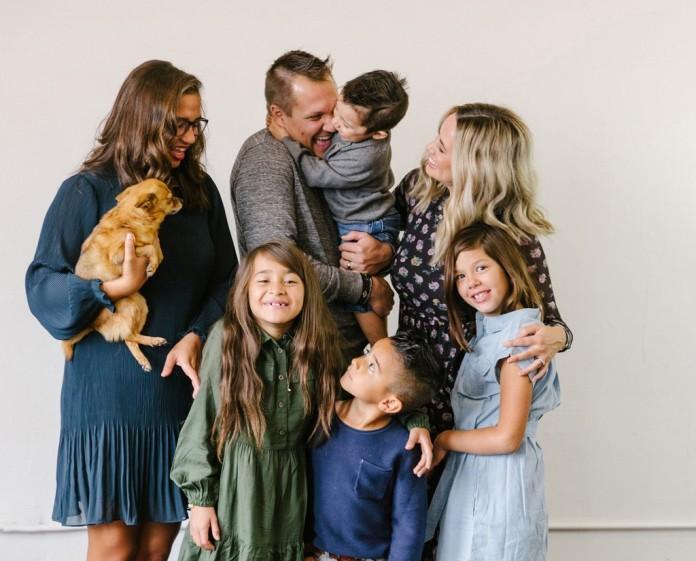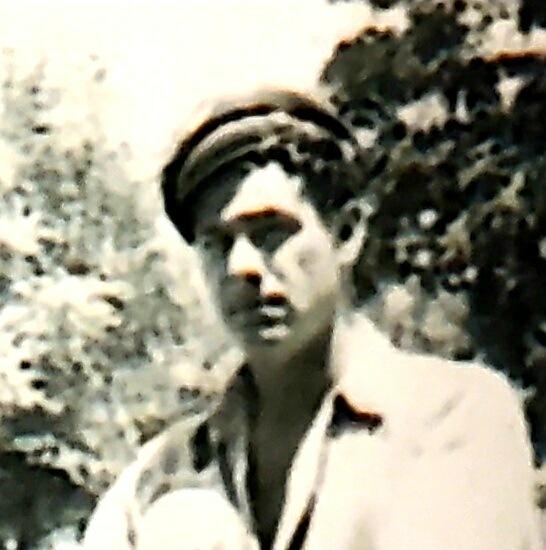Story by Lori Coonrod
This is the time of year we honor our mothers, the ones that gave us life, and those that make life possible either biologically or through adoption. Adoption is perhaps publicly one of the most under-celebrated yet most admirable avenues of parenting. We were recently entrusted with the stories of three remarkable women and how adoption forever changed their lives.
Strength and Sacrifice
Karen Staples was born to a strong loving mother that married her biological father quite young. The navy took the small family to Guam and Hawaii to live while her father fulfilled his service. It was after they returned to Northwest Oklahoma the couple realized they had simply grown up a bit and drifted apart and decided to get a divorce when Karen was three years old.
Karen lived with her mother, who took a job at Walker Electric, a business that was upstairs from a dance studio. It was at the dance studio Karen’s mother met the man she would marry when Karen was between four and five years old. She was the flower girl in the wedding, something people are more accustomed to seeing in today’s times; however, it was unique at the time. Karen was welcomed into the man’s extended family with open arms. It was soon after the wedding that her new stepdad decided he wanted to adopt Karen and solidify their family unit legally.
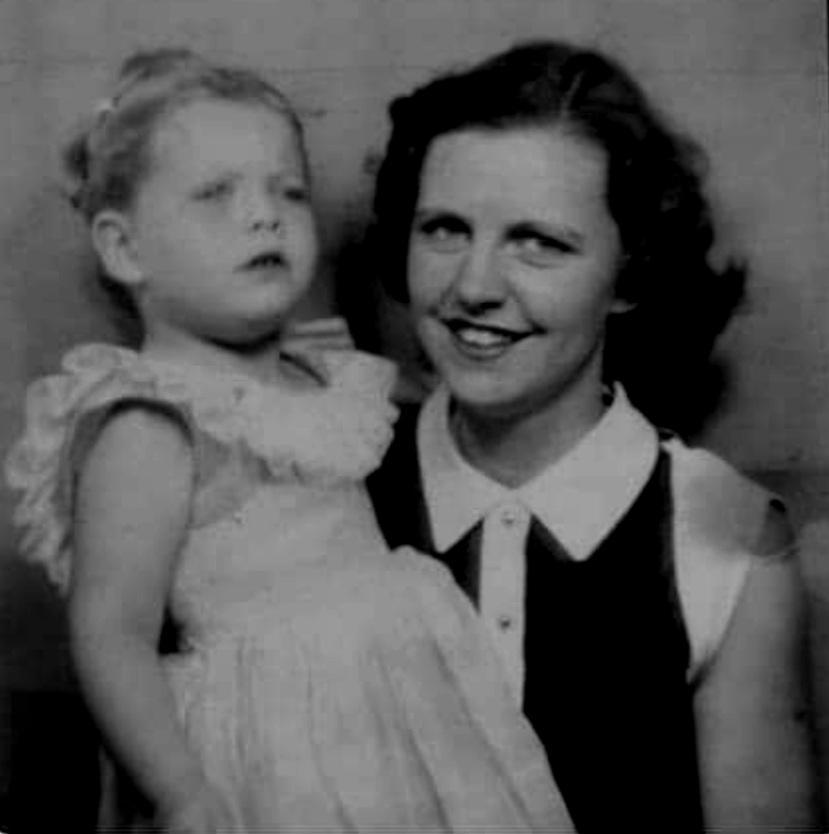
Karen’s mom contacted her biological father and he, having relocated out of state and beginning to start a new life of his own, agreed to allow the adoption. The only stipulation was that out of respect for the new family Karen’s biological father would not contact her until she was at least eighteen years old. He agreed and from that moment on, Karen’s stepdad became her daddy, the man would raise her as his own.
When sitting down to talk about her story, Karen said it was “hard to do a story on adoption because I do not see myself as adopted”. With her newly extended family as well as the family on her mother’s side, she was raised in a very loving and supportive environment and was never treated differently by her daddy’s parents or extended family. She has many fond memories of spending time on her grandparent’s farm near Lahoma.
When Karen turned eighteen, she made an important life decision to follow her heart and turn down a full-ride college scholarship to get married and start a family of her own.
It was after she had her first child that her mother’s sister would receive a phone call from her biological father. He wanted to test the waters to see if the sister would reach out to both Karen and her mother for the possibility to meet her. They agreed and a meeting was set. He had honored the agreement he made with her mom and daddy over the years; however, she soon found out he had a sister that lived in the Enid area that had kept up with her school activities and achievements to share so that he could keep up with her from a distance to know she was doing.
While getting to know him she realized they had many similarities, they both outgoing personalities and liked the same type of music to name a few. She was very candid with her father and was willing to maintain a relationship if it did not affect her mother and daddy.
They came to an understanding as she made it clear that she would always respect him as her father but that he would never be her “daddy”. That title was reserved for the one man that stepped in and stayed by her side. She knows the saying “Anyone can be a father, but it takes someone special to be a dad” very well, having lived it.
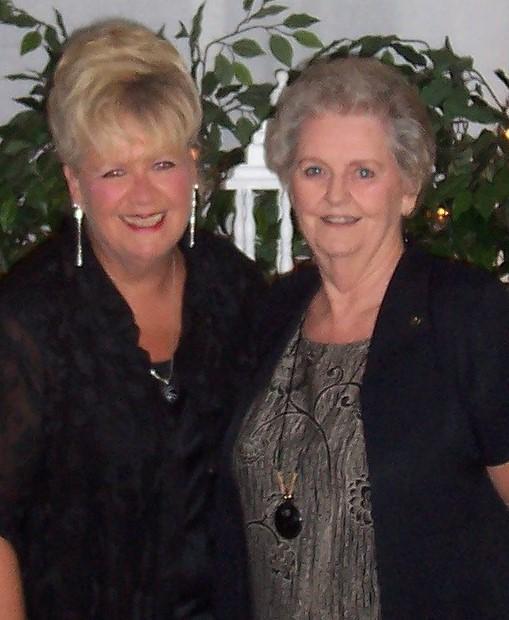
Throughout her life, Karen and her mother remained close. She remembers never hearing her mother say a disrespectful word about her father, remaining strong and supportive. Her mother never pushed information on her but always provided answers when she was curious and would ask questions about her past. Her mother was a kind, strong woman whose genuine personality was displayed through a letter written to her first husband’s widow upon his death. The letter included how thankful she was to be able to attend his service and that “You and he were together 40 years and me and him, not four. I know you made him happy, something I could not do, but he gave me a beautiful daughter and I am thankful he knew her and her family.”
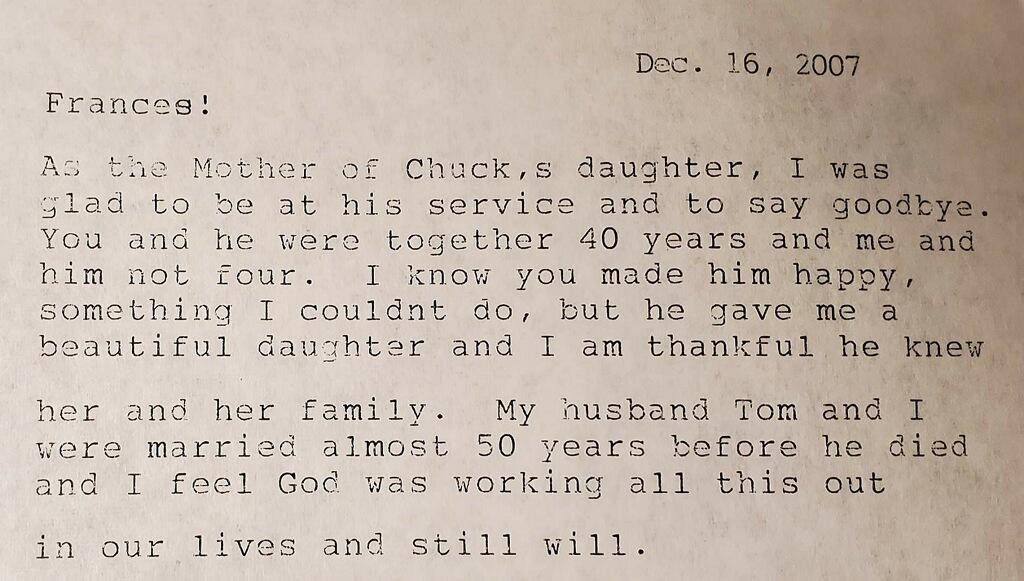
Prayer and Perseverance
Leslie Klamm has a long history of involvement with the foster care and adoption system. She currently does contract work, home studies, preparation, post-placement and worked for the Department of Human Services out of college in child welfare which often entailed removing children from homes as necessary and placing them with foster families. She worked for DHS for nine years before leaving to pursue an opportunity to work for the church and for her and her husband to become foster parents. Over the next eleven years, they fostered thirty-two kids, focusing on sibling groups. Five of those years they ran the Holsinger Home for Children as appointed missionaries of the United Methodist Church. They fostered twenty-eight kids throughout the time they ran Holsinger Home. Twenty-one of those were in sibling groups.
At one point they fostered six children at the same time in addition to their two children and became pregnant with another child of their own. The group was quite a sight as they shopped, dined, and were out and about as a family. All eight children were at the hospital when it was time to greet the new baby girl. The doctor cautioned it was during prime RSV season and the risk of infection was high, however, the family made it through with health intact and no major issues.
They all loved their new baby sister and loved doing things for her. With that many children in the house, the baby girl rarely had to do anything for herself. As she grew into her toddler years, they had to coach the children to make sure and let her walk do more things for herself.
When Leslie and her husband left Holsinger Home to pursue other opportunities, they continued to foster for a few more years, however just one child at a time. It was when one of their former foster kids had a third failed adoption and at the age of twelve that their adoption journey began. He had always gotten along with their kids and fit in well with them, so it was a natural fit. However, it did not come without challenges. Leslie said, “If I didn’t believe in adoption, I would not work in it still. I have to share my story to help people realize that while there is something of a past, we have gone through the years with him and have had to meet him where he was at mentally and emotionally”.
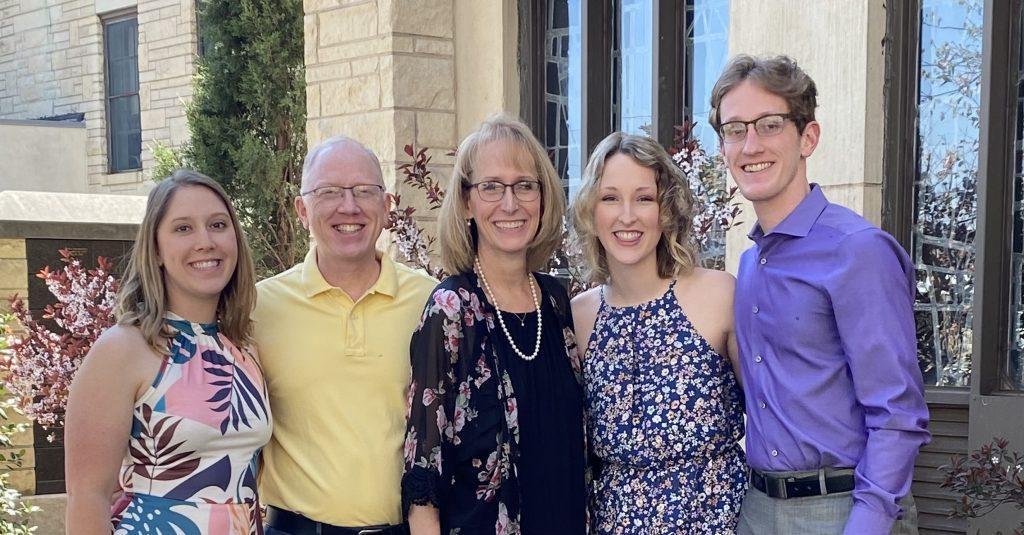
When they met their son for the first time, he was almost eight years old. He was the seventh of nine children and came from a bad situation along with a younger brother and sister. The brother and sister were able to maintain with some family that adopted them. However, it was one of his failed placements. Two were family and one was friends that thought they could meet his needs and did not end up being a positive placement. The bigger issue with him resulted from seven years of being raised in an environment of chaos, substance and other forms of abuse, and mental illness that created “demons”. When he turned seventeen, he started struggling with mental issues. Leslie shared “the downfall of adoption is you can not always control it, that is also the reality of biological children”.
Despite his battle internally, he was able to complete the requirements reaching the prestigious rank of Eagle Scout through the Boy Scouts of America. An accomplishment he is still very proud of today.
Unfortunately, the success in the moment was somewhat short-lived as two weeks later he decided the household had too many rules and he was gone. They have continued to keep in touch over the years although he now lives out of state. He is self-sufficient, working to support himself and through many challenges, they have been able to keep in touch. Leslie and her husband never gave up on him. Their relationship developed into “meeting him where he is” which has very different parameters than their biological children.
Today, the Klamm’s are still the ones he will call when he gets a new job or has done something well. He will also call them when he is struggling, He has learned what they will do for him and what they will not. It is different, but Lelie still considers raising him a success because he can hold down a job and support himself. Their relationship is often based on what he has needs from them and they find a way to meet those needs if they are able. It is not your traditional mom and dad role, however, it works for them. This is the result of his inability to attach. He is his own worst enemy when it comes to relationships. Leslie says that generally if you can get a child placed in a permanent home by the time they are three or four, they are more likely to bond more successfully.
As far as how having an adopted older brother has affected their biological children, both girls in the family want to foster and adopt. She says they have seen the good and the bad and still plan to do so. Her youngest son has written a paper on the positive effects of being a foster and is well on his way to being a pediatrician but says he will more than likely enjoy nieces and nephews and has no plans currently to have children of his own.
Leslie and her family keep up with over half of the other kids they fostered mainly through social media. A lot of them have thanked them for providing support and life lessons as they grew up. They learned things as simple as basic grooming to life skills such as doing chores and laundry. Every one of them grew up helping around the house and pitching in.
When asked how people who may not be able to foster but would like to support families that do, she suggested contacting the Garfield County Child Advocacy Center here in Enid. They collect monetary donations as well as items such as cribs, beds, car seats, and necessities that could be donated to help ease the financial burden and sometimes short notice in a foster situation. The center takes donations on-site or they can pick up items as well. It is a great resource for our community. Another resource for the community is The Foster Closet. An organization run by Wendy Beckner that provides clothing and beds for kids. They take clothing ranging from infant to adult sizes as well as donations of cribs, toddler, and twin-size beds. The best number to call to find out more about donating is (580)747-5515. Leslie shared one of her favorite sayings: “When you have more than you need, build a longer table, not a higher fence”.
Faith Over Fear
Sarah Herrian always knew in her heart she wanted to adopt a family. She was surrounded by blended families and people of all races and walks of life through her church as she grew up. Her husband Jeremiah did not take much convincing and was on board for exploring the adoption path.
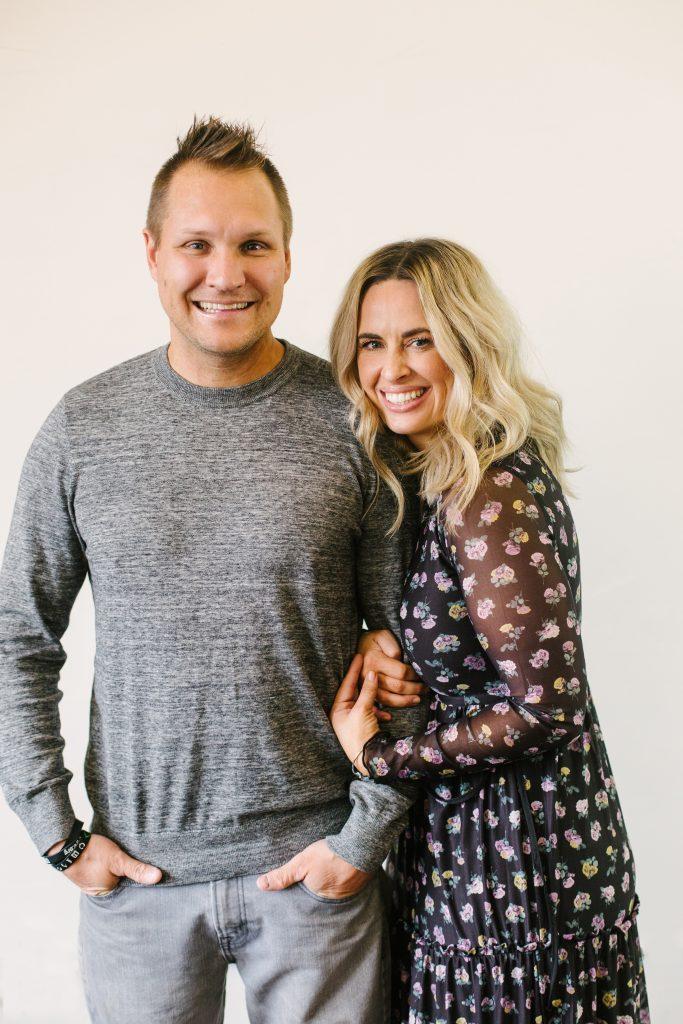
When they decided it was time to pursue growing their family, they began their journey into adoption. At the time, events called “adoption parties” were held. Of course, as with many events, the recent pandemic has since put an end to the events geared to give both children and prospective parents together in a large group atmosphere so that they might meet and socialize with hopes to find a match. Sarah still has mixed feelings about the events, describing the events as a bit weird and strange. It was not just about finding children you were interested in adopting, the children had to choose the parents as well. Just as they were beginning to feel defeated as they were attending their third or fourth adoption event, they met the two sisters who would ultimately choose them to be their parents and they began the journey to adoption. Once the decision to adopt was made, there were still many challenges involving court officials, paperwork, and legal processes which could be overwhelming for those going through the process for the first time. They were able to make it through, confident in the fact that this was the path that God had chosen to grow their family. Once they adopted, Sarah was more open to fostering and began to understand how great the need was. They jumped right in and had ten or eleven children through their home that were either unified with their biological families or extended families until the latest set of three siblings entered their lives. After fostering for around two years, they were able to adopt two of the three and are currently in the process of adopting the third making them a family of five.
Sarah gets emotional talking about the need of so many sibling groups throughout Oklahoma that are currently up for adoption. She knows it is a hard ask for parents to take on one child let alone two or more to keep them together. Many siblings unfortunately are split up after already being ripped from their homes and all they have ever known. “Not everyone has that much extra room in their homes or cars although they may have the room in their hearts,” she said when asked if finances may also play a part in not being able to take on more than one child. She expressed there are many ways families can get financial assistance to adopt. She said, “money should never, ever, ever be the reason you why somebody is not able to adopt” and that if anyone feels like that is the only thing holding people back, she will share the ways.
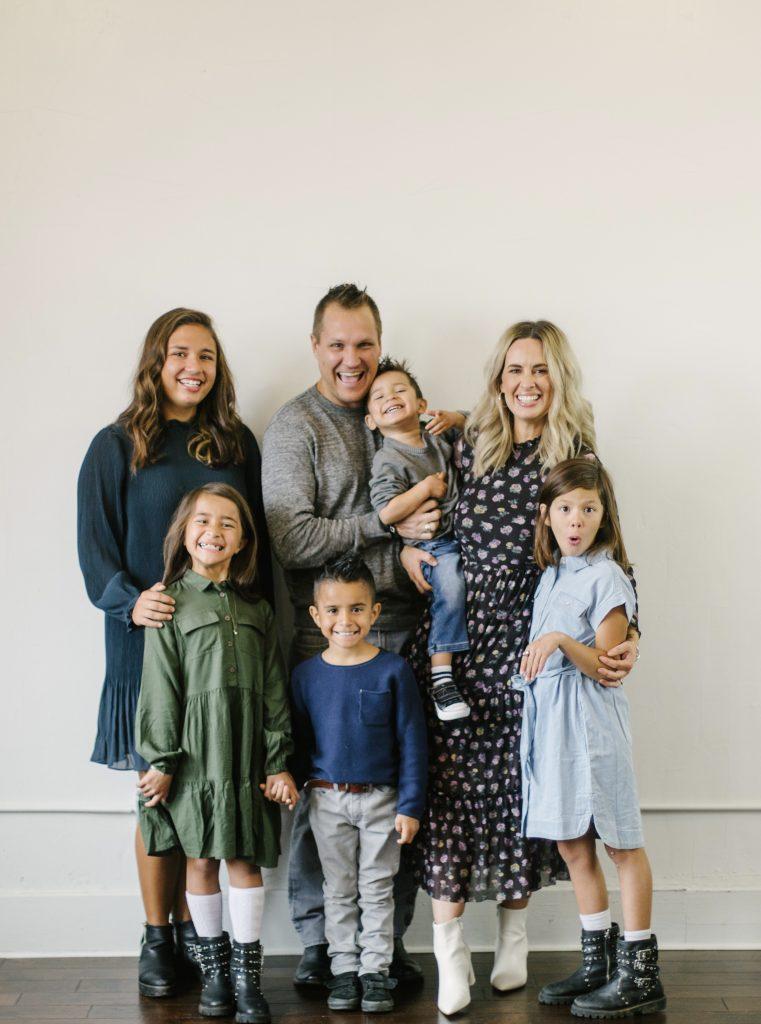
She knows the ways well and has information to share because not only because of her journey to adopting children of her own. She also currently serves as the Executive Director of the Foster Care and Adoptive Association of Oklahoma. The website for the organization serves as a great resource and place to start for anyone interested in finding out more information and can be found online at fcao.org. She also shared information for people that while fostering a child or adoption is not a possibility for themselves, they would happily provide support to those that are. She said if you know people that are fostering children some ideas on how to help include preparing meals once in a while, offering restaurant or grocery gift cards, providing babysitting, or offering to help with rides to and from school or activities. There is also a way to donate items through the local link for careportal.org which is a site that lists items that range from clothing to furniture for various families in need.
Sarah says she is not sure where their adoption journey will take them from here and knows there are so many children still out there that need permanent homes. She expressed how important it was for people to love without boundaries and that yes, the process may be hard on adults as it is easy to get attached. Her prayer is that even if people might get attached, she prays that people would foster and love the child unconditionally for as long as they are in their care. Even if it is just a few months, a few weeks, or a few years, that kind of love lasts a lifetime, they never forget that. It is vital for them to feel the love to be able to feel the attachment and bond in their other relationships. She knows firsthand the heartache that takes place when separated from a child or children that you have opened your home to. “Yes, it is a grieving process,” she said, “it hurts, and you might be in bed for a few days, but we are adults, and we will get over it.” Nothing compares to the amount of love that child was able to feel, and they will carry that with them the rest of their lives.”
Not flesh of my flesh
Nor bone of my bone,
But still miraculously my own
Never forget for a single minute,
You didn’t grow under my heart
But in it.
– Fleur Conkling Heyliger




